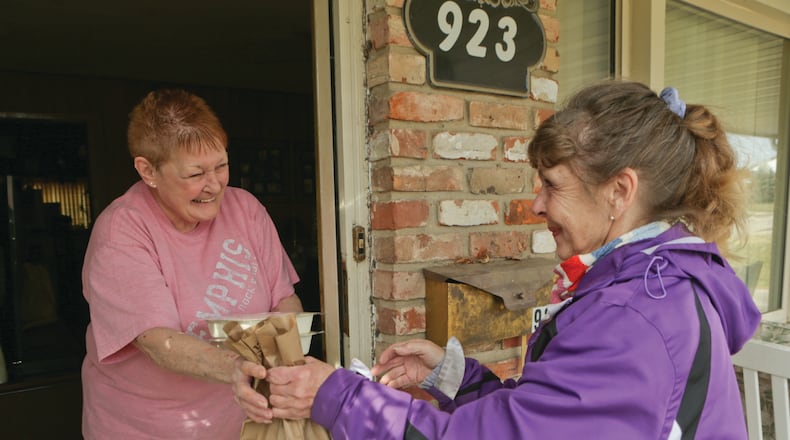Taxpayers would still be required to pay their bills. However, property owners might see nearly 3.5 mills taken off their 2021 tax bills that are payable in 2022, and the Elderly Services Program levy wouldn’t be collected.
Warren County Commission President David Young said this has been something he has wanted to do for taxpayers and that now was the time to do it.
He said it’s a way to indirectly reduce property taxes as a cushion for taxpayers who my see increased taxes due the revaluation of the county.
Young said the county “did well in 2020 without the federal government without ridiculous windfall of borrowed money.”
“Warren County is fiscally conservative,” he said. “Everything we do we treat the taxpayers dollars as if it was our own checkbook.”
County Auditor Matt Nolan said the Council on Aging for Southwestern Ohio, the multi-county agency that serves older adults , recommended not collecting its portion because of a growing surplus funds received from the levy and the federal government estimated at more than $11.26 million. Nolan said they wanted to spend that down.
“These problems are the ones we like to have,” Nolan said.
In the previous levy cycle from 2012 to 2016, they had more than $6.65 million extra unspent that they carried over, Suzanne Burke, president and CEO of the Council on Aging, told the commissioners.
Burke said the drivers for the surplus included about $3 million more in levy revenue; $664,000 more in federal revenue; and $3.2 million less in expenses due to the caseload not growing.
In the current levy cycle that expires at the end of 2021, Burke said they projected an ending balance of about $3.1 million, but anticipate carrying over more than $11.2 million.
As before, Burke said the drivers for the larger revenues in this levy cycle included $3.2 million in unanticipated levy revenue; $1 million in one-time federal COVID-19 funding; and lower service use because of the COVID-19 shutdown for adult day care, transportation, and home health care.
All revenues generated in Warren County are used to assist elderly Warren County residents, county and Council on Aging officials said.
Nolan said his office and the county commissioners office would be providing more information about the 2022 plan to not collect the inside millage from property owners in the coming weeks.
The Elderly Services Program costs a property owner about $35 per $100,000 in property valuation. According to Warren County documents, the levy generates about $7.67 million a year.
The Warren County commissioners approved the first of two resolutions to place the five-year renewal of the 1.2 mill Elderly Services Program levy on the Nov. 2 general election ballot. Approval of the levy will not increase taxes.
The commissioners will make their final decision on the non-collection of its inside millage for 2021 and to proceed with placing the Elderly Services Program renewal levy at it next meeting on Tuesday.
About the Author

